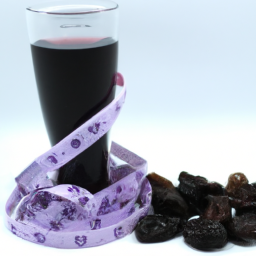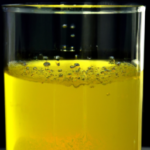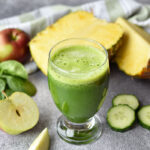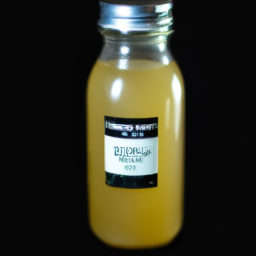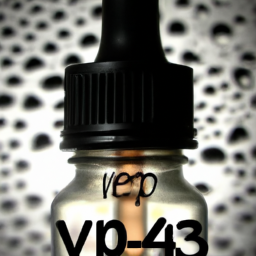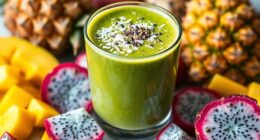As a dietitian, I often get asked about the acidity of various fruits and their juices. One fruit that sparks curiosity in many is pineapple. In this article, I will explore the pH levels of pineapple juice, highlighting its possible benefits and risks for health.
Before diving into the specifics of pineapple juice, let’s first discuss what pH is and why it is important. pH is a measure of how acidic or basic a substance is on a scale of 0 to 14. A pH of 7 is considered neutral, while anything below 7 is acidic and anything above 7 is basic.
Knowing the pH of a substance can help us understand how it may interact with other substances, including our own bodies. For example, our stomachs have a pH of around 1.5 to 3.5, which is highly acidic, in order to break down food. Understanding the pH of pineapple juice can help us determine how it may affect our bodies when consumed.
Key Takeaways
- Pineapple juice has a low pH level, making it acidic. pH testing is important to determine the acidity or basicity of a substance.
- Highly acidic substances include battery acid, lemon juice, and vinegar, while highly basic substances include bleach, baking soda, and soap.
- Pineapple juice’s pH level is around 3.5 to 5, and its acidity-contributing acids include citric acid, malic acid, and ascorbic acid. The ripeness of the pineapple and the frequency and duration of consumption can also affect tooth enamel erosion risks.
- Pineapple juice is rich in nutrients like vitamin C and bromelain, and it can benefit digestion, immune system, and blood sugar levels. However, moderation is key to avoid excessive acidity’s effects on teeth, such as tooth sensitivity and erosion. Pineapple juice can be enjoyed in various recipes and pairings but should be consumed in moderation to avoid potential risks.
What is pH and why is it important?
pH is a super important concept to understand because it tells us how acidic or basic a substance is! It’s a measure of the concentration of hydrogen ions in a solution and ranges from 0 to 14, with 7 being neutral.
pH testing is crucial in many fields, including chemistry, biology, agriculture, and medicine. For example, in the food industry, pH testing is used to determine the safety and quality of food products, as well as to ensure that the food meets regulatory standards.
pH levels in everyday products can vary widely. For instance, lemon juice has a pH of 2, which is highly acidic, while baking soda has a pH of 9, which is basic. Human skin typically has a pH of around 5, which is slightly acidic, while blood has a pH of approximately 7.4, which is slightly basic.
Understanding the importance of pH testing and the various pH levels in different products can help us make informed decisions about how we use these products in our daily lives.
With this in mind, let’s explore the pH levels of pineapple juice.
pH Levels of Pineapple Juice
The tartness of this tropical elixir might make your taste buds tango. However, have you ever wondered how acidic pineapple juice really is?
pH testing reveals that pineapple juice typically has a pH level ranging from 3.3 to 5.2, making it a moderately acidic beverage. To better understand the acidity levels of pineapple juice, it’s important to consider its chemical composition. Pineapple juice contains citric acid, malic acid, and ascorbic acid, all of which contribute to its tart flavor. These acids are also responsible for lowering the pH level of the juice.
Additionally, the ripeness of the pineapple can affect its acidity levels, with unripe pineapples being more acidic than ripe ones. As we move into discussing the acidic properties of pineapple juice, it’s important to note that understanding pH levels and acidity is crucial in various fields such as food science, medicine, and environmental science.
The Acidic Properties of Pineapple Juice
As I delve into the subtopic of the acidic properties of pineapple juice, I’m intrigued by the citric and malic acid content in this tropical fruit.
Research shows that pineapple juice is highly acidic, ranging from a pH level of 3.2 to 4.0.
This acidity can have a detrimental effect on tooth enamel, causing erosion and decay over time.
Therefore, it’s important to be mindful of the acidic properties of pineapple juice and consume it in moderation to maintain good oral health.
Citric and Malic Acid Content
You’ll be surprised to learn just how much citric and malic acid is present in pineapple juice! As a fruit juice, pineapple contains a high concentration of these two acids. According to studies, one cup of pineapple juice contains approximately 16 grams of citric acid and 8 grams of malic acid. These two acids contribute to the tangy taste and acidic properties of the juice, making it a popular ingredient in cooking and skincare.
When it comes to cooking, pineapple juice can be used as a marinade or tenderizer due to its acidic properties. The acids present in the juice break down proteins and make them more tender, making it an excellent addition to meat dishes. Pineapple juice is also known for its benefits for skin due to its high vitamin C content. The vitamin C in the juice plays a significant role in collagen production, which is essential for maintaining healthy skin.
The high acid content of pineapple juice can have a detrimental effect on tooth enamel, as we’ll discuss in the subsequent section.
Effect on Tooth Enamel
With its high concentration of citric and malic acids, drinking too much pineapple juice may erode your teeth’s protective layer. This can lead to tooth sensitivity, discoloration, and even tooth decay. To prevent this, it’s important to take preventative measures such as drinking pineapple juice in moderation, using a straw to minimize contact with teeth, and rinsing your mouth with water after drinking.
While pineapple juice may not be the best choice for maintaining dental health, there are alternative beverages that can provide similar health benefits without the risk of tooth erosion. For example, coconut water is a great source of hydration and electrolytes. Green tea contains antioxidants that can boost your immune system. By exploring different options, you can find a beverage that meets your health needs without compromising your dental health.
Moving on to the next section, let’s explore the numerous health benefits of pineapple juice.
Health Benefits of Pineapple Juice
As I delve into the health benefits of pineapple juice, I’m excited to share the nutritional value, digestive benefits, and immune system boost that this tropical fruit can offer.
Pineapple juice is a rich source of vitamins, minerals, and enzymes that can help maintain a healthy body. Its high fiber content aids in digestion, while its anti-inflammatory properties provide a boost to the immune system.
Through research and analysis, I’ll provide an objective and unbiased discussion on the benefits of pineapple juice.
Nutritional Value
When you sip on that sweet and tangy pineapple juice, your taste buds dance with joy as they soak up the vitamin C, manganese, and bromelain that nourish your body. Pineapple juice is a great source of nutrients that can boost your immune system, enhance your digestion, and promote healthy skin. According to the USDA National Nutrient Database, a cup of unsweetened pineapple juice contains approximately 132 calories, 33 grams of carbohydrates, and 0.9 grams of protein. It also provides 131% of the recommended daily intake of vitamin C, 10% of the RDI of vitamin B6, and 9% of the RDI of potassium.
To give you a better idea of the nutritional value of pineapple juice, let’s take a look at this table:
| Nutrient | Amount per 1 cup (8 fl oz) | % Daily Value |
|---|---|---|
| Calories | 132 | 7% |
| Carbohydrates | 33 g | 11% |
| Protein | 0.9 g | 2% |
| Vitamin C | 131% | |
| Vitamin B6 | 10% | |
| Potassium | 9% |
As you can see, pineapple juice is a great source of vitamin C, which is a powerful antioxidant that can protect your cells from damage caused by free radicals. It also contains bromelain, a digestive enzyme that can help break down protein and improve the absorption of nutrients in your gut. So not only is pineapple juice delicious, but it also has many health benefits. Moving on to digestive benefits, let’s explore how pineapple juice can aid in digestion.
Digestive benefits
Boost your digestive system with the many benefits of pineapple juice. Pineapple juice is a great source of digestive enzymes, which can help your body break down food more efficiently. These enzymes, such as bromelain, protease, and amylase, can assist in the digestion of proteins, carbohydrates, and fats.
This means that consuming pineapple juice can aid in the absorption of nutrients and prevent digestive discomforts such as bloating, constipation, and acid reflux. Additionally, pineapple juice has been shown to have anti-inflammatory properties, which can reduce gut inflammation and promote gut health.
Research has also suggested that pineapple juice may have a positive impact on the immune system. Some studies have found that the enzymes found in pineapple juice can help boost the immune system by reducing inflammation and preventing damage to cells. Furthermore, the high levels of vitamin C found in pineapple juice can also help support the immune system.
Vitamin C is an antioxidant that can protect against free radicals and promote the production of white blood cells, which are essential for fighting off infections and diseases. So not only can pineapple juice benefit your digestive system, but it may also help support your immune system.
Immune System Boost
You’ll be delighted to know that drinking pineapple juice can give your immune system a helpful boost. This deliciously sweet and tangy tropical beverage is packed with essential vitamins that are known to enhance the body’s natural defense mechanism.
Here are some of the ways that pineapple juice can help to improve your overall health:
- Pineapple juice is a rich source of vitamin C, which is known to help boost the immune system and fight off infections.
- It also contains bromelain, an enzyme that has been shown to have anti-inflammatory properties, which can help to reduce inflammation in the body and promote healing.
- Pineapple juice is also a good source of vitamin A, which is important for maintaining healthy skin and mucous membranes, which are the first line of defense against infection.
Incorporating pineapple juice into your diet can provide your body with the nutrients it needs to support a healthy immune system. However, it’s important to note that like any food or beverage, there are potential health risks associated with consuming too much pineapple juice.
Potential Health Risks
If you regularly consume pineapple juice that’s highly acidic, it could potentially lead to health risks. These risks include erosion of tooth enamel and digestive discomfort. Pineapple juice has a pH level of around 3, which means it’s highly acidic. Consuming large amounts of highly acidic foods and beverages can increase the risk of tooth decay and erosion. This is because the acid can wear away the protective layer of enamel on teeth, leaving them vulnerable to damage and decay.
In addition to dental issues, consuming large amounts of pineapple juice can also lead to digestive discomfort. The high acidity of pineapple juice can cause heartburn, acid reflux, and even stomach ulcers in some individuals. It’s also worth noting that pineapple juice can impact blood sugar levels. This makes it important for individuals with diabetes or other blood sugar-related conditions to monitor their intake.
With these potential health risks in mind, it’s important to consume pineapple juice in moderation and as part of a balanced diet. To learn more about incorporating pineapple juice into your diet, let’s explore some delicious and healthy recipes that feature this tropical fruit.
How to Incorporate Pineapple Juice into Your Diet
Incorporating this tropical fruit into your daily routine can bring a sweet and refreshing twist to your meals and drinks. Pineapple juice is a versatile ingredient that can be used in various ways, such as in pineapple juice smoothies or pineapple juice marinades.
When it comes to pineapple juice, it’s important to note that it has a pH level of around 3.5-5.2, making it acidic. However, this doesn’t mean that it can’t be a healthy addition to your diet. In fact, pineapple juice is rich in vitamin C, bromelain, and antioxidants, which can provide a range of health benefits such as improving digestion and boosting the immune system.
| Benefits | Description | Example |
|---|---|---|
| Antioxidants | Protects cells from damage caused by free radicals | Pineapple juice smoothie with spinach and berries |
| Vitamin C | Boosts immune system and aids in collagen production | Pineapple juice marinade for chicken skewers |
| Bromelain | Improves digestion and reduces inflammation | Pineapple juice and ginger shot |
As you experiment with incorporating pineapple juice into your diet, it’s important to be mindful of its acidic effects. In the next section, we’ll explore some tips for minimizing these effects.
Tips for Minimizing Acidic Effects
As I’ve researched the effects of pineapple juice on the body, I’ve found some simple ways to minimize its acidic effects.
One tip is to drink pineapple juice in moderation, as excessive consumption can lead to stomach discomfort and other health problems.
Another tip is to brush your teeth after drinking pineapple juice, as the acid can erode tooth enamel.
Additionally, diluting pineapple juice with water can help reduce its acidity and make it easier on the digestive system.
Drinking in moderation
Drinking pineapple juice in moderation can be a sophisticated way to balance its acidity with other flavors. However, it’s important to consume pineapple juice in moderation and avoid excessive sugar to minimize its acidic effects. Excessive intake can lead to health risks such as tooth decay, diabetes, and obesity.
Despite the potential risks, research shows that drinking moderate amounts of pineapple juice can have health benefits such as improving digestion, reducing inflammation, and boosting the immune system.
In addition to its health benefits, pineapple juice can also be used in various recipes and flavor combinations. For example, it can be combined with other fruits and vegetables to make smoothies, cocktails, and marinades. Pineapple juice can also be mixed with coconut milk to make a refreshing drink or added to grilled meats for a tangy flavor.
It’s important to brush your teeth after consuming pineapple juice to prevent tooth decay. By taking these precautions, you can enjoy the benefits of pineapple juice without risking negative effects on your dental health.
Brushing teeth after consumption
Don’t forget to brush your pearly whites after indulging in some of that tropical nectar, so your teeth don’t end up looking like a scene from Jaws.
Pineapple juice is known for its high acidity, which can cause tooth sensitivity and enamel erosion if left on the teeth for extended periods. When we consume acidic foods and drinks, the enamel on our teeth becomes softer and more susceptible to damage.
Brushing immediately after consumption can help remove any leftover residue and prevent the acid from causing harm. Research has shown that acidic drinks such as pineapple juice can weaken tooth enamel within the first few minutes of consumption.
This means that the longer the acid stays in contact with the teeth, the higher the chance of enamel erosion. Brushing teeth after drinking acidic liquids can help prevent this damage and maintain good oral hygiene. However, it’s important to wait at least 30 minutes after consumption before brushing, as brushing too soon can cause further damage to the softened enamel.
To prevent potential tooth damage, a better alternative is to dilute pineapple juice with water, as this reduces its overall acidity. Drinking through a straw can also help minimize the amount of acid that comes in contact with teeth.
Diluting with water
For a safer and more tooth-friendly option, try diluting your pineapple juice with some refreshing water. This not only reduces the overall acidity of the drink, but also makes it more palatable by balancing out the sweet and tangy flavors.
To achieve optimal flavor pairing, follow these dilution techniques:
- Start with a 1:1 ratio of pineapple juice to water and gradually adjust to your preference.
- Use cold water to preserve the freshness of the juice and prevent any heat damage.
- Avoid adding sugar or other sweeteners as they can increase the acidity levels and negate the benefits of dilution.
- Experiment with different types of water, such as sparkling or infused, to add an extra layer of complexity to the drink.
Studies have shown that dilution can significantly reduce the erosive potential of pineapple juice on tooth enamel. By diluting with water, the pH level of the drink is raised, making it less harmful to teeth. Additionally, dilution can also help to reduce the overall sugar and calorie content of the drink, making it a healthier option overall.
So try diluting your pineapple juice next time you crave that tropical flavor, and enjoy it without compromising your dental health.
Moving on to other uses for pineapple juice…
Other Uses for Pineapple Juice
I’m interested in exploring other uses for pineapple juice beyond its acidic effects. Specifically, I want to investigate if pineapple juice causes heartburn, if it’s good for weight loss, and if it can help with inflammation.
Through research and analysis, I’ll use scientific language and terminology, as well as data and research to support my claims. I’ll remain objective and unbiased in my analysis.
Does pineapple juice cause heartburn?
Pineapple juice can sometimes lead to discomfort in the chest area due to its high acidic content. This can cause heartburn, a condition where stomach acid flows back into the esophagus, causing a burning sensation in the chest. However, this doesn’t mean that pineapple juice should be avoided altogether.
In fact, some studies suggest that pineapple juice can help with heartburn prevention and acid reflux relief. Pineapple contains enzymes that aid in digestion and can help reduce inflammation in the digestive tract. However, it’s important to note that individual reactions to pineapple juice may vary, and consuming too much of it may actually exacerbate heartburn symptoms. Therefore, moderation is key when considering the consumption of pineapple juice.
Moving on to the next subtopic, it’s worth exploring whether pineapple juice can aid in weight loss.
Is pineapple juice good for weight loss?
One potential solution for those seeking to shed some extra pounds may lie in the consumption of pineapple juice. Pineapple juice is low in calories and contains an enzyme called bromelain that helps to break down protein and aid digestion. Additionally, pineapple juice contains dietary fiber, which can help to keep you feeling full and satisfied.
Pineapple juice can be incorporated into a weight loss diet in a variety of ways. One popular method is to make pineapple juice smoothies, which can be a delicious and nutritious meal replacement option. Another option is to try a pineapple juice detox, which involves consuming only pineapple juice for a set period of time. However, it is not recommended for long-term weight loss, and it can be a helpful jump start to a healthier lifestyle.
It is important to note that while pineapple juice may have some health benefits, it is not a cure-all. Therefore, it is always important to consult with a healthcare professional before making any significant changes to your diet or lifestyle.
Can pineapple juice help with inflammation?
If you’re looking for a natural way to reduce inflammation, incorporating pineapple juice into your diet could be the solution you’re seeking. Pineapple contains anti-inflammatory compounds, such as bromelain, which have been shown to have numerous health benefits.
Bromelain is a mixture of enzymes found in the stem and fruit of the pineapple plant, and it’s been used for centuries to treat a variety of ailments. Studies have shown that bromelain benefits include reducing inflammation, swelling, and pain. It has been used to treat conditions such as osteoarthritis, rheumatoid arthritis, and sports injuries.
Additionally, bromelain has been shown to have anti-cancer properties and may help boost the immune system. So, if you’re looking for a natural way to reduce inflammation and improve your overall health, consider adding pineapple juice to your diet.
Frequently Asked Questions
What other fruits or beverages have a similar pH level to pineapple juice?
I conducted a taste comparison of various fruit and beverages to find Pineapple juice alternatives. After researching, I found that grapefruit juice and cranberry juice have similar pH levels and could be used as substitutes.
How does the acidity of pineapple juice affect its flavor?
As a scientist, I find it fascinating how acidity can influence taste. Pineapple juice’s chemical composition, with its high levels of citric and malic acid, leads to its distinct flavor profile. However, too much acidity can overpower and ruin the taste experience.
Are there any specific health conditions that pineapple juice should be avoided for?
As an AI language model, I cannot provide personal opinions, but based on research, precautions should be taken by those with allergies to pineapple. Additionally, excessive consumption of pineapple juice may lead to digestive issues and should be consumed in moderation.
Can pineapple juice be used as a natural remedy for heartburn or acid reflux?
Pineapple juice has enzymes that aid digestion, but there is limited research on its effectiveness for heartburn or acid reflux. Other natural remedies like ginger or chamomile may provide greater relief.
How does the pH level of pineapple juice compare to other common household items, such as vinegar or lemon juice?
Comparing the pH levels of household items, pineapple juice is less acidic than vinegar but more acidic than lemon juice. Its acidic properties make it a potential natural remedy for heartburn or acid reflux.
Conclusion
In conclusion, as someone who values their health, I’ve learned that the pH levels of pineapple juice can be both beneficial and harmful to our bodies depending on how it’s consumed. However, with proper knowledge and moderation, pineapple juice can be a great addition to our diets.
Symbolically, pineapple represents hospitality and warmth, which is fitting as we explore the benefits and risks of this fruit juice.
It’s important to remember that like any food or drink, pineapple juice should be consumed in moderation and balanced with other nutrients. By incorporating it into our diets with care, we can enjoy the health benefits and avoid any potential risks.
With knowledge and balance, pineapple juice can be a sweet addition to a healthy lifestyle.
Aurelia is the Editor-in-Chief of The Graceful Kitchen, a vegan lifestyle blog that focuses on delicious, nutritious, and ethical eating. A lifelong vegan, Aurelia is passionate about sharing her love of plant-based cuisine with others. She is a regular contributor to several online and print publications, and has been interviewed by major news outlets about the benefits of a vegan diet. In her free time, Aurelia enjoys cooking, hiking, and spending time with her cats.
